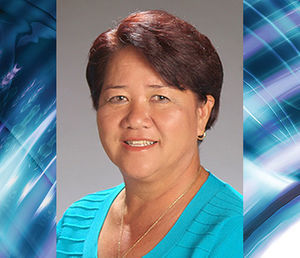HONOLULU — A bill that would require farms to implement buffer zones around schools, watersheds, shorelines and hospitals when spraying pesticides is unnecessary, said state Rep. Dee Morikawa. “I introduced a pesticide disclosure back in 2013 and that was passed
HONOLULU — A bill that would require farms to implement buffer zones around schools, watersheds, shorelines and hospitals when spraying pesticides is unnecessary, said state Rep. Dee Morikawa.
“I introduced a pesticide disclosure back in 2013 and that was passed into law. There’s already disclosure,” she said Monday. “This bill, without too much discussion, is very concerning for the farmers as a whole. Any farmer is going to be affected by this if it passes in this form,” said Morikawa, D-Waimea-Niihau.
House Bill 790 also requires commercial entities purchasing or using an unspecified amount of restricted-use pesticides to “post warning signs, issue written notifications of application and make annual public disclosure.”
If this bill were to pass (it is scheduled to be voted on today), counties would be authorized to adopt stricter regulations and allow citizens to file civil suits against those who violate the newly adopted regulations.
But Morikawa said the bill lacks clarity and is being rushed.
“If you read the bill carefully, there’s a lot of misinformation in there. I’m not supporting it,” she told The Garden Island. “There’s too many conditions in there that haven’t been thought out. How is it going to be done? How much is this going to cost the taxpayer? I want to get all the stakeholders together to see where everyone is at today with the pesticide issues.”
On March 1, the House committees on Consumer Protection and Commerce recommended that the measure be approved with amendments, with eight votes for the bill, none opposed and one excused. On March 3, a 48-hour notice was posted for today.
House Bill 790 would require farmers to report each time pesticides are sprayed, which Morikawa said is tedious for farmers who are trying to work and harvest. She also said the farmers aren’t getting their voices heard.
“You have to report, constantly,” she said. “It’s going to take the farmers away from what they really want to do. They haven’t really had a good chance to come in and share their concerns because they’re not sure what it’s going to do to them. It says you have to notify your neighbors every time you spray and all that, but they’re going to be so busy working.”
The federal Environmental Protection Agency cannot comment on the matter because the bill is still in discussion.
Syngenta also did not respond to TGI by press time.
Kauai already has a “Good Neighbor Program” that Morikawa says is a success and should be adopted on other islands, but any more regulations without further deliberation and input is a mistake.
“I don’t want to put hardship on our farmers,” she said. “We’re not sure how many of them are going to be affected. Who knows how many farmers will even want to be involved in farming with all of this disclosure that hasn’t even been proven to affect our health.”


